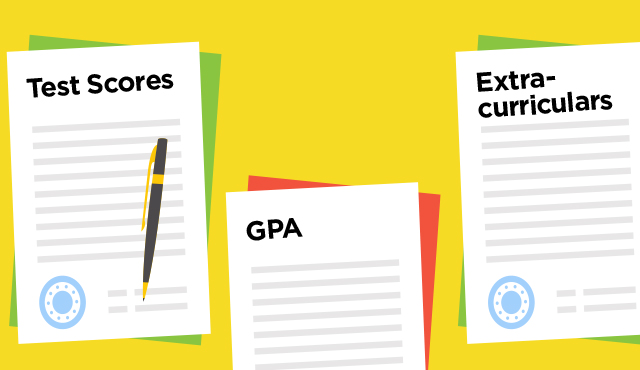Does Your GPA Matter in Grad School?
Photo by Ketut Subiyanto on Pexels
When contemplating applying to graduate school, one of the first questions that comes to mind is, "Does my GPA matter?" The answer is multifaceted and varies depending on the graduate program, the admissions committee, and other aspects of your application. This blog will explore the importance of GPA in the context of grad school, considering both admission and academic success.

Understanding GPA and Its Role in Graduate School
Photo by Andre Hunter on Unsplash
GPA, or Grade Point Average, is a standard way of measuring academic achievement in the United States. It is calculated by dividing the total amount of grade points earned by the total number of credit hours attempted. GPA is a critical factor during both undergraduate and graduate studies, but its role and importance can differ significantly between the two.
In undergraduate studies, your GPA is a reflection of your overall academic performance throughout your college career. This undergraduate GPA (or undergrad GPA) is often a major consideration for admissions committees when you apply to grad school. Graduate programs typically have specific GPA requirements for admission, which can vary from one institution to another. For instance, a competitive graduate program might require a minimum GPA of 3.5, while others may accept students with a 3.0 GPA or lower.
GPA Requirements for Graduate School Admissions

Graduate programs usually set a minimum GPA requirement that applicants must meet to be considered for admission. These requirements often vary from school to school and even between different programs within the same institution. Common GPA thresholds for graduate school programs are 3.0, 3.5, and 4.0.
A high GPA, such as a 4.0, can significantly enhance your application, demonstrating to the admissions committee that you have a strong academic background and the ability to handle challenging coursework. Conversely, a low GPA might raise concerns about your readiness for graduate-level studies. However, many graduate schools adopt a holistic approach to admissions, meaning they consider other factors beyond just your GPA.
The Role of GPA in the Admission Process

Admissions committees evaluate a range of factors when considering applicants for graduate school. While GPA is an important component, it is not the only one. The admissions committee will also consider your work experience, letters of recommendation, personal statement, and any relevant research experience. A good GPA can certainly strengthen your application, but a comprehensive and balanced application is crucial.
For instance, if you have a GPA of 3.0 but possess extensive work experience, strong letters of recommendation, and a compelling personal statement, you might still be a competitive candidate. On the other hand, a high GPA alone may not be enough if other aspects of your application are weak. It’s essential to present a well-rounded application that highlights your strengths in various areas.
How a High or Low GPA Can Impact Your Application
A high GPA (e.g., above 3.5) can open many doors in the graduate school application process. It suggests that you are capable of succeeding academically at a high level, which is a positive signal to the admissions committee. Programs that are particularly competitive or those that focus heavily on academic research may place greater emphasis on a high GPA.
Conversely, a low GPA (e.g., below 3.0) can pose challenges. It may lead the committee to question your ability to handle graduate-level coursework. However, this doesn’t necessarily mean you are out of the running. If you have a low GPA, there are strategies you can employ to strengthen your application. Highlighting significant work experience, obtaining strong letters of recommendation, and explaining any extenuating circumstances that may have impacted your GPA can all help mitigate concerns.
The Importance of GPA During Graduate Studies

Once admitted to a graduate program, maintaining a good GPA continues to be important. Your academic performance in grad school, often reflected in your grad school GPA, can affect your eligibility for research positions, assistantships, and fellowships. These opportunities can be crucial for funding your education and gaining valuable experience.
A high GPA in grad school can also impact your future job applications and academic career. Employers and academic institutions often look at your graduate school GPA to assess your expertise and dedication. Maintaining a strong GPA during your graduate studies is essential for maximizing your opportunities post-graduation.
Other Factors Influencing Graduate School Admission and Success
While GPA is important, it’s not the sole determinant of your success in the graduate school admission process or during your studies. Other factors that play a significant role include:
- Standardized Test Scores: Many graduate programs require standardized test scores (e.g., GRE) as part of the application process. Strong test scores can complement your GPA and enhance your application.
- Work Experience: Relevant work experience can be a valuable asset, especially for professional graduate programs. It demonstrates your practical skills and ability to apply academic knowledge in real-world settings.
- Letters of Recommendation: Strong letters of recommendation from professors or professionals in your field can provide a more comprehensive picture of your abilities and potential.
- Personal Statement: A compelling personal statement can make a significant difference. It’s an opportunity to explain your motivations, goals, and why you are a good fit for the program.
Common Myths About GPA in Graduate School

There are several myths about the importance of GPA in graduate school that are worth debunking:
- Myth 1: GPA is the only thing that matters. While important, GPA is just one part of your application. Admissions committees consider multiple factors.
- Myth 2: A low GPA means you can’t get into a good graduate program. Many schools take a holistic approach to admissions. A strong overall application can offset a lower GPA.
- Myth 3: Once you’re in grad school, GPA doesn’t matter anymore. Your GPA in grad school can impact opportunities like assistantships and fellowships, and it may be considered by future employers or academic programs.

Tips for Prospective Grad Students

If you’re preparing to apply to grad school, here are some tips to help you improve your chances:
- Improve Your GPA: If you’re still in undergrad, focus on raising your GPA. Take advantage of tutoring services, form study groups, and prioritize your coursework.
- Choose Schools Wisely: Apply to schools that match your academic profile. Look for programs where your GPA and other qualifications make you a competitive candidate.
- Strengthen Other Application Components: Ensure your personal statement, letters of recommendation, and any required test scores are as strong as possible.
- Explain Your GPA: If you have a low GPA, consider addressing it in your personal statement. Explain any extenuating circumstances and highlight other strengths.
- Maintain Balance: Once you’re in grad school, strive to balance maintaining a high GPA with gaining practical experience and building professional relationships.
Conclusion
In conclusion, your GPA does matter in the context of grad school, but it’s not the only factor that admissions committees consider. A high GPA can enhance your application and open up opportunities during your graduate studies, but a well-rounded application that includes strong work experience, letters of recommendation, and a compelling personal statement is equally important. By focusing on all aspects of your application and maintaining a balanced approach to your academic and professional development, you can increase your chances of success in both the admission process and your graduate studies.
Remember that your GPA is just one part of your academic journey. Whether you have a high GPA or a low one, what matters most is your dedication, passion, and ability to succeed in your chosen field.




